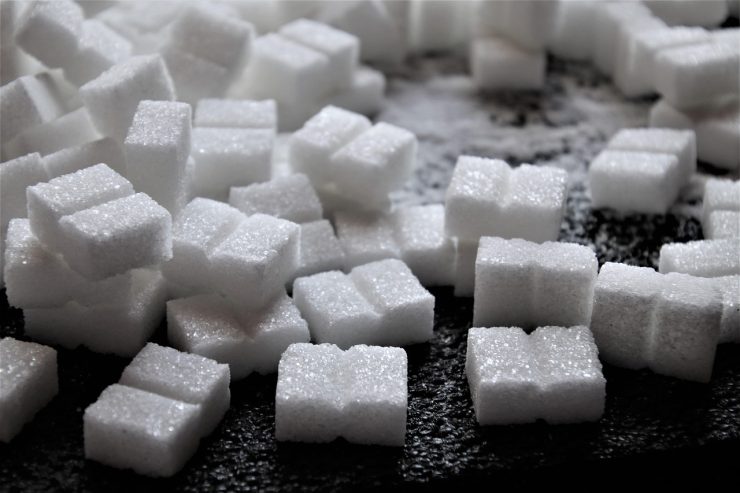Is Splenda Wrecking Your Gut Without You Even Realizing It?
You’ve got your own little ecosystem living inside you right now—seriously. Your gut is home to trillions (yep, trillions) of microscopic critters. These bacteria make up what’s called your microbiome, and they’re a big deal when it comes to your health.
We used to think they just helped with digestion, but now we know they do way more than that. Your gut bacteria affect everything from how you absorb vitamins, to how well your immune system works, to how your body stores fat—and even how you feel mentally. In fact, 95% of your body’s serotonin (a feel-good brain chemical) is produced in your gut.
So yeah, your gut matters—a lot.
But here’s the thing…
Splenda and Your Microbiome: Not a Great Match
Splenda (aka sucralose) is often marketed as a “healthy” sugar alternative. It’s even been advertised as being made from sugar—which sounds innocent enough, right?
Not so fast.
While Splenda starts off as sugar, it’s chemically altered—processed with chlorine—into something your body doesn’t recognize. It’s actually closer in structure to a pesticide than to sugar. Yikes.
Although it was approved by the FDA in 1998, most of the research they relied on involved animals, not humans. And what we do know from more recent studies is that sucralose messes with your gut bacteria in a big way.
It’s been shown to kill off beneficial bacteria—the good guys that keep your digestion humming and your immune system strong. And once you throw your gut out of balance, all sorts of problems can pop up: inflammation, leaky gut, autoimmune issues, even mood swings and weight gain.
What the Science Says
A study published in the Journal of Toxicology and Environmental Health found that Splenda didn’t just kill good gut bacteria—it also disrupted the pH of the gut and messed with a key glycoprotein that helps your body process certain medications. That’s a big deal if you’re taking meds for serious conditions like cancer or heart disease.
Other research out of Canada has linked increased Splenda consumption with a rise in Inflammatory Bowel Disease (IBD), which can lead to painful, life-altering complications—sometimes even surgery to remove parts of the colon.
So yeah, that little yellow packet may not be as “harmless” as it seems.
Common Side Effects People Report from Splenda:
-
Gas, bloating, diarrhea
-
Headaches or migraines
-
Skin issues like rashes or itching
-
Mood changes, anxiety, or depression
-
Joint pain
-
Brain fog or dizziness
-
Blood sugar spikes
-
Weight gain
And in long-term animal studies, the effects are even more concerning: anemia, infertility, kidney damage, and even brain lesions. Not exactly what you’re signing up for when you’re trying to “cut sugar.”
How to Support a Healthy Gut (and Keep Those Critters Happy)
If you want to keep your gut—and the rest of your body—feeling good, it’s worth doing a little cleanup. Here are some tips to support your microbiome:
-
Ditch artificial sweeteners
Go for natural alternatives like stevia or monk fruit instead. -
Eat more veggies and fiber
Your gut bacteria thrive on certain plant fibers (think leafy greens, root veggies, and berries). -
Get in your fermented foods
Sauerkraut, kimchi, kefir, yogurt (the kind with live cultures), kombucha, and even a little wine or dark chocolate can help. -
Avoid excess sugar, processed flours, and gluten
These feed the bad bugs in your gut and crowd out the good ones. -
Consider a probiotic
A good-quality supplement can help repopulate your gut with healthy strains of bacteria—especially helpful after antibiotic use. -
Watch out for hidden antibiotics
Factory-farmed meat and dairy often contain antibiotic residues. Choose organic or pasture-raised when you can. -
Filter your water and avoid antibacterial products
Chlorine in tap water and triclosan in soaps can disrupt your gut balance too.
The bottom line? Your gut is ground zero for your health—physical and mental. Splenda might be calorie-free, but it comes at a cost your body pays in other ways. So, be kind to your critters. Feed them real food, ditch the chemicals, and they’ll take good care of you in return.











